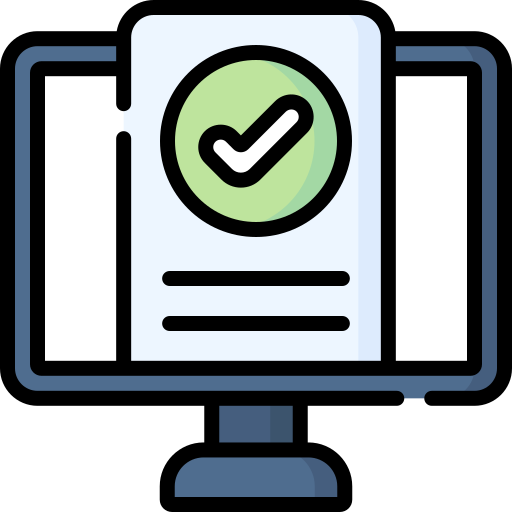How To Get The Most Out Of A 30 Minute Phone Interview
Hiring New Staff Is Hard Work, Time Consuming, And Expensive. If You Are Constantly Involved In The Recruitment Cycle For Your Collection, You Know How Time Consuming It Can Be. But Do You Know About The Costs?
Reducing the time you spend hiring new staff will help you reach your goals sooner, even more than you think. A report published by UrbanBound outlines the demand for time and how costs are added to it: It takes time.
This can increase costs by up to one-third of an employee’s salary, especially when a new employee is hired in a position where training has nothing to do with their job title.
“Therefore, if a small firm’s training plan lacks strategic evaluations, the firm may run the risk of retaining employees who will be overly costly for the complex because they have learned skills different from the organization’s policy.”
With that in mind, it might make sense to think that organizations and companies should spend less time on general interviews and, on the other hand, improve the quality of time during initial conversations. How do you think the overall costs can be reduced by reducing time and ultimately improving the interview process?
One of the methods is telephone interviews, which have become very popular these days. Paying attention to the questions you ask can make things easier in the next steps. The following is an overview of a 30-minute telephone interview:
How to have a thirty-minute phone interview?
I know what you’re thinking. Thirty minutes to find a great option is too short. So how do we make it worthwhile? You may be asking yourself these questions:
- What questions should I ask?
- How do I prioritize questions?
- If I have a hectic schedule, can I communicate with the interviewee?
If you have a simple schedule, your questions are appropriate, and you are regular and fluent at the beginning of the interview, you will most likely get most of your questions answered within the first few minutes. Therefore, it is better to start with time management.
Manage the first five minutes
If you decide to have a good and efficient interview in thirty minutes or less, you need to act regularly and carefully. But, on the other hand, if you want to start very strong, there is no better time than the first five minutes.
Here are four things to do in the first five minutes:
- First, introduce yourself: “Hello, I am one of the directors of the collection … “We are growing rapidly and looking to find the best marketers in the country today.”
- Explain your purpose: “We are looking for the best person available for the post … and we want the selected option to have certain characteristics. “For this reason, I would like to move very quickly to see if we can get along.”
- Specify your plan: “I would like to ask you a few questions in ten minutes. “After that, I will give you as much time as possible to ask any questions you may have.”
- Mail confirmation: “Bhnzrtan How are you? If you hear anything other than “I totally agree” or “I agree,” do not hesitate. For example, “Someone who does this and that will certainly have a problem with your goals.”
Next Ten Minutes: Get answers to key questions
If you want to ask more questions in ten minutes, you need to be prepared and go ahead with the program. Before you begin, you should prepare clear questions about their skills and expertise and assume that the respondent is intelligent enough to give a concise answer.
How the respondent copes with the speed of this section is very important. If the interviewee tries to show off, dismiss them immediately. To improve the process of questions, do not try to interrupt their careers and let them continue.
By doing so – gossip or marginalization – they reduce their chances of answering other questions and ultimately lose the chance to work for your company. On the other hand, if you are on the side of a good and intelligent interviewer, they will find that you will ask the following questions if you are looking for more explanation. Certainly, some of the best interviewees answered your questions quickly and skillfully and responded without the slightest delay.
Allow ten minutes for the person to show themselves
Now it’s time for the interviewer to excite you with their prepared questions. Your goal at this point is to see how prepared the interviewee is and how serious they are about getting the job. You need to find out if the person in front of you is looking for a job or if they really want to be part of your team and work for you.
A good interviewee prepares himself well. They will carefully read your site, your history, your team, and your suggestions. It also prepares a list of specific questions to show how familiar it is with your business concept and perhaps optimistically describing the value it adds to your collection.
Many interviewees are unaware of the importance of this part and express something of themselves that you did not realize before. People who listen well to the first five minutes of the interview can act as quickly as you would like and respect your schedule.
Things to know in the ten minutes for the interviewee:
- Has your website read well? Test him.
- Do you realize what you are doing? Ask him questions.
- Is he looking for more compensation, or does he want to do his job?
- Is he more looking for benefits and leave, or does he care about the company’s growth?
Final Five Minutes: Conclude the interview with the following steps
One thing to keep in mind during the initial interview is that the goal is not hiring. It is going to the next step. The job seeker is ready for the next interview or has no hope for him to continue. You are not going to hire him today. So please do not overdo it. Just ask the vital questions you think you need to hear and finish the session. You should definitely not have time for this part, but it is enough.
Let them know about your plan for the next steps and let them know what your expectations are. Continuation of the interview should always be the responsibility of the interviewee. One of the weaknesses of most interviews is the weakness of subsequent sessions.
Five Important Features of a Thirty Minute Phone Interview
1- Ability to learn
Employees who cannot be guided and trained face many problems in difficult situations, and those who can accept instructions and training progress very quickly. “Hiring with a trainable personality will help you find people who have the qualities to become valuable members in the long run,” says Derek Lauber of the Lightbox Leadership suite.
Sample Question: What do you do if you can not reach your goals after ninety days?
2- Transparency
Honesty can be used instead of transparency. One of my curiosities is to ask questions that prove that the interviewee is not honest. However, a transparent workplace plays an important role in maintaining a true and positive culture. Jessica Miller Merle of Glassdoor advises: “When you see someone who is not in line with your collection, it is very likely that the people under him will be in the same situation.”
Sample Question: Why should I not hire you?
3- Desire
People who work hard to improve their situation are harder than people who work just for fun. So, look for those who are thirsty for success.
Sample Question: Why is this job the way you want to continue your career?
4- Organizational skills
Today’s work environments mean dealing with things that distract us. Having a proper set and structure will increase efficiency and ultimately increase productivity. “Planning and having a plan is one of the skills needed in the workplace. Therefore, it is essential for a person to move towards managerial roles,” advises Rick Suttle in his book Organizational Skills in the Workplace.
Sample Question: How do you plan for your day and week, and what tools do you use to do it here?
5- Humility
The best players on a team are humble and avoid selfishness because this feature creates behaviors that can destroy everything you create. “Humility is much more than an important attribute for managers and leaders, but it also applies to employees,” says John Baldoni at HBR. This feature makes all team members, both managers, and employees, work well both individually and as a team. “A humble employee is well aware of his limitations and, in addition to respecting them, is willing to help.”
Sample Question: These are amazing results. What do you owe your success to?
A few more questions and explanations
In addition, it is best to spend a few minutes of your time asking specific questions about your resume. Therefore, prepare some clear and explicit questions in advance. Here are two examples of good questions to ask:
- How was your relationship with your boss in your previous job?
- Which of these posts do you think hinder your career advancement?













